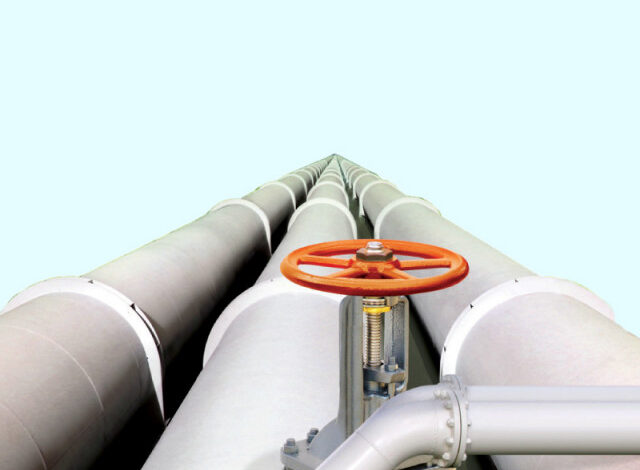The government is prepared to eliminate gas cross-subsidies.

In accordance with the system set up for the Power Division, the government plans to discontinue cross-subsidy for domestic gas users and implement a direct budgeted subsidy model by 2026.
Under the Resilience and Sustainability Facility, the federal government is negotiating with the International Monetary Fund (IMF) to replace cross-subsidies with direct subsidies that are in line with consumer income levels under the Benazir Income Support Program.
The Petroleum Division told the cabinet during a recent meeting that they were working with the IMF and that the new system would probably be ready by 2026. It claimed that as part of its efforts to revitalize the gas industry, it had already engaged the consulting firm KPMG and established a special committee to look into replacing cross-subsidies.
Residential consumers were found to be receiving a cross-subsidy of more than Rs150 billion, which was funded by raising tariffs on commercial, industrial, and captive power plants. The Petroleum Division further stated that a levy had been placed on the captive power plants as part of the reforms that were agreed upon with the IMF. Because of this, their gas prices have gone up, their consumption has decreased, and they are less able to cross-subsidize residential customers.
It was brought up during a discussion of a Sui Southern Gas Company (SSGC) court case in Balochistan.
Sui and Zarghon, two Balochistani fields, provide SSGC with about 111 million cubic feet per day (mmcfd) of gas, which is not enough to meet the province’s winter demand from domestic consumers, which peaks at 210 mmcfd. In order to compensate for the shortfall, SSGC diverts gas from its sources in Sindh, which is subject to load management and low pressure during the winter.
According to SSGC, over 26 billion cubic feet (bcf), or 59% of the 44 bcf that were supplied to Balochistan, were either stolen or unlawfully used through gas meter tampering. According to the Petroleum Division, SSGC’s operations in Sindh experienced unaccounted-for-gas (UFG) losses of 9.5% during the fiscal year 2022–2023, but the losses in Balochistan were an astounding 59.7%. An estimated Rs22 billion was lost as a result of Balochistan’s poor or nonexistent recoveries.
In order to support the government’s socioeconomic development agenda and to adhere to the Balochistan High Court’s periodic orders regarding the maintenance of adequate supply pressure during the winter, SSGC continued to operate and invest in the region despite consistently high UFG losses.
In May 2023, the Balochistan High Court ordered SSGC to stop charging more than Rs5,700 per month for gas. Additionally, it established a commission to recommend gas rates to be applied in Balochistan’s colder regions.
The commission recommended the following domestic tariffs: 200 cubic meters at Rs250 per million British thermal units (mmBtu) for the summer, or Rs2,551 per month; and 590 cubic meters at Rs500 per mmBtu, or Rs8,848 per month, for the winter. The maximum amount owed over a five-month period would be Rs62,092. Over 590 cubic meters of consumption would result in a monthly non-protected category tariff of Rs5,174.
According to the Petroleum Division, revenue losses resulted from the Balochistan High Court’s order dated June 13, 2024, which ordered SSGC to implement the commission’s recommendations retroactively starting in November 2023.
Monthly fees for two slabs were calculated as follows in compliance with the notified tariff, which went into effect on February 1, 2025, under Section 8(3) of the Ogra Ordinance, 2002:
The notified rate for consumption up to 200 cubic meters is Rs4,200 per mmBtu, which comes to Rs15,827. On top of that, there are Rs2,000 in fixed charges, making the monthly bill Rs17,827. Gas costs Rs106,441 plus Rs2,000 in fixed charges for usage over 400 cubic meters, for a total of Rs108,441.
The Petroleum Division contended that revenue losses resulted from the commission’s suggested tariff structure’s inconsistency with the government-approved tariff. It was further explained that SSGC had appealed the Balochistan High Court’s ruling to the Supreme Court. The Oil and Gas Regulatory Authority (Ogra) was instructed by the supreme court in its order dated October 24, 2024, to carefully examine the commission’s report and finalize recommendations through hearings and consultations with all pertinent parties.
Ogra held a hearing on November 11, 2024, and on November 22, the cabinet was notified of its findings. Ogra emphasized in its report that commission members were not permitted to recommend a special tariff for Balochistani consumers by citing any statutory provisions.